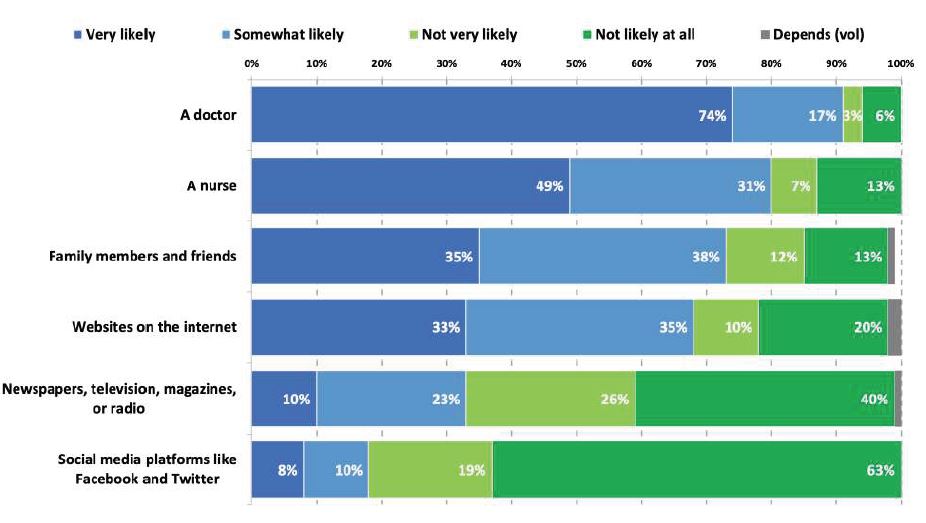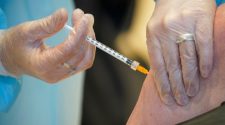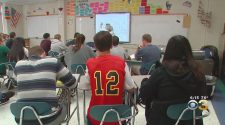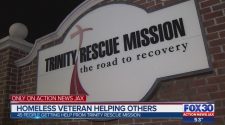On Thursday, results from a poll revealed that although they are able to seek health care information from more places than ever before, New Jersey residents still turn to – and trust – doctors and nurses more than any other source.
Nine in 10 New Jerseyans report being likely to ask a doctor for information; 8 in 10 say they ask a nurse; and around 9 in 10 trusts each of these sources to provide accurate health information. These results were extracted from the latest poll in the New Jersey Health Matters series, by the New Jersey Health Care Quality Institute in partnership with the Eagleton Center for Public Interest Polling at Rutgers University-New Brunswick.
The statewide poll of 802 New Jersey adults contacted by live callers on both landlines and cell phones was conducted between May 29 and June 4, 2019.
Schwimmer
“We can obtain health information today from so many sources—from medical websites to family members to our own providers,” said Linda Schwimmer, president and chief executive officer of the Quality Institute. “We wanted to know exactly who people trust when it comes to obtaining health information. As we work to improve public health with health providers and plans, mayors and health officers, as well as state officials, these results provide invaluable insight into who are the most trusted messengers and where the public goes to find out this information.”
About 7 in 10 New Jerseyans also seek out health information from family and friends and websites; similar numbers also trust these sources. New Jerseyans rate traditional and social media much lower: a third seek and trust information from television, newspaper or radio, while about 1 in 5 use social media for health-related information, and 1 in 10 trusts it, according to the poll.
“The pattern of who or what New Jerseyans trust to provide accurate health and health care-related information mirrors the pattern of who or where they seek information about health and health care-related topics,” said Ashley Koning, assistant research professor and director of the Eagleton Center for Public Interest Polling. “The more they trust a particular source, the more they are likely to seek information from it.”
Black residents, for example, are most trusting of their family and friends—with 79 percent saying they trust family and friends “a great deal” or “a moderate amount” to provide accurate information. White residents (73 percent) are slightly less likely to trust information from their families and friends, and Hispanic residents (62 percent) are much less likely to do so.

Likelihood of Seeking Out Health Informatino from each of the Following Source. – NJHCQI / RUTGERS EAGLETON CENTER FOR PUBLIC INTEREST POLLING HEALTH MATTERS POLL SERIES
“While residents across the board largely seek out and trust health care providers most, racial, educational, and economic differences exist in the degree to which some groups use and trust certain sources,” said William Young, research associate at the Eagleton Center for Public Interest Polling.
A significant gap also exists between racial and ethnic groups when it comes to seeking out information from traditional media. Black residents (51 percent) are more likely than Hispanics (40 percent) and twice as likely as whites (25 percent) to seek out information from newspapers, television, magazines, or the radio. A similar pattern emerges, though a narrower gap, when it comes to trusting these sources.
A matter of trust
Even though few members of any racial or ethnic group seek information from social media platforms, black residents and Hispanic residents indicate that they are slightly more likely than white residents to look on social media for information about health or health care; even fewer residents trust the information they might find there.
According to the poll, those with a high school diploma or less are slightly less likely to obtain information and trust doctors and nurses than those with higher levels of education. They are somewhat more likely to use and trust traditional and social media. Having a college degree or higher is associated with a greater likelihood of checking websites for information.
The likelihood of turning to family members and friends, traditional media sources, and social media declines as income rises. While 82 percent of residents with household incomes of under $50,000 would turn to their family and friends, only 66 percent of those in households making at least $150,000 say the same.
“Understanding where people go for health care information – and how this may differ among particular groups – is a critical element for any public health campaign,” Schwimmer said. “We hope to bolster our mission to improve health care quality, safety and affordability for everyone through these results.”
















